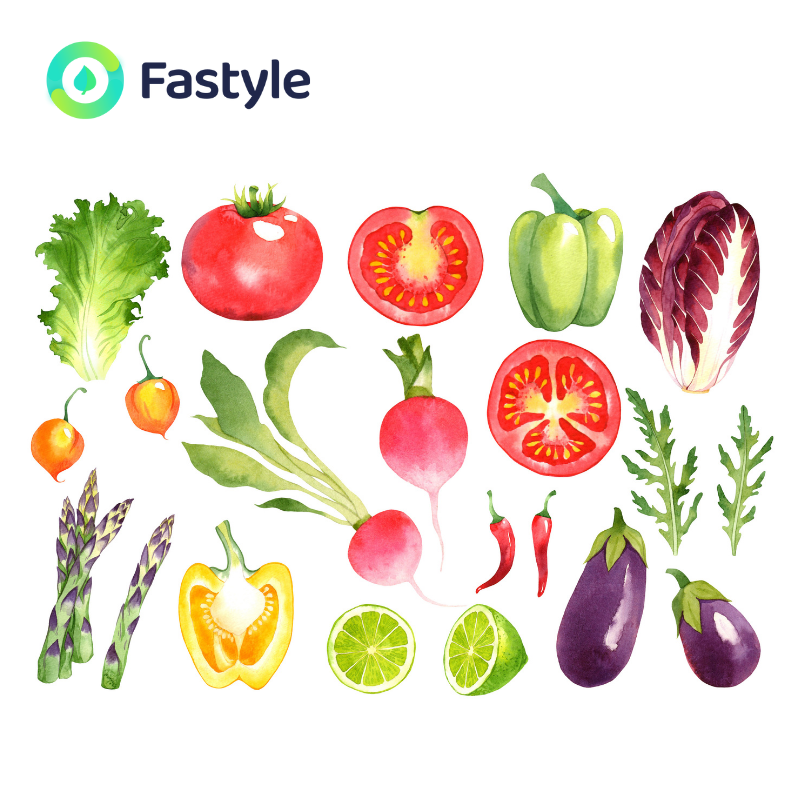There’s no doubt that vegetables perfectly go with a healthy lifestyle. Therefore, it’s also friendly with intermittent fasting and some vegetables will be introduced below in this article, including the best way to cook them for most nutrition for your body.
Carrots
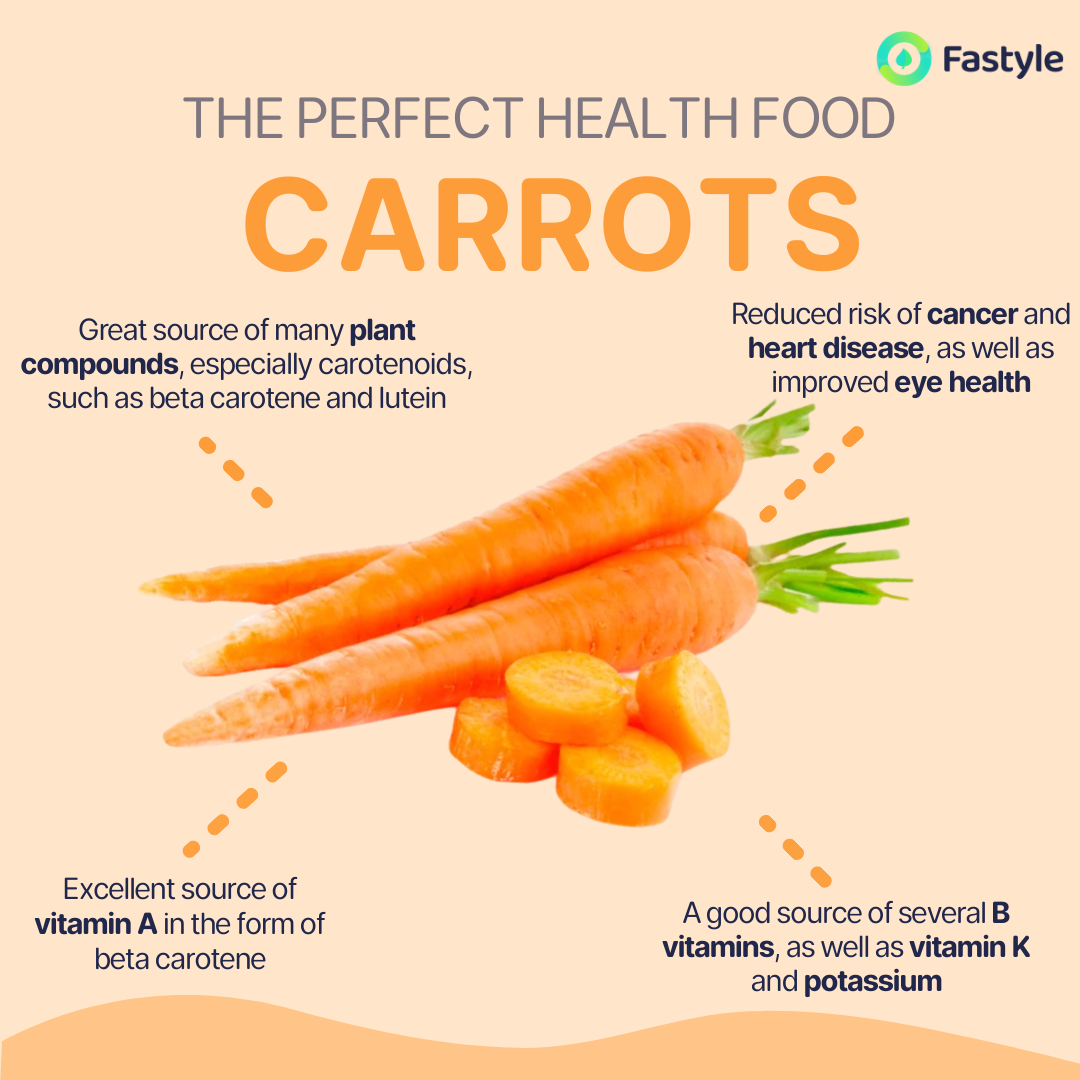
Carrot Nutrition
Half a cup of carrots has the following nutrition:
- Calories: 25
- Carbohydrates: 6 grams
- Fiber: 2 grams
- Sugar: 3 grams
- Protein: 0.5 gram
- Vitamin A: 73% of your daily requirement
- Vitamin K: 9% of your daily requirement
- Potassium and fiber: 8% of your daily requirement
- Vitamin C: 5% of your daily requirement
- Calcium and iron: 2% of your daily requirement
Benefits of Carrots
- Beneficial to help to protect your eyes from common eye problems.
- Beneficial to make you less likely to suffer from cancer.
- Beneficial to reduce the risks of heart diseases.
- Beneficial to lose weight.
- Beneficial to boost your immune system and prevent infections.
- Beneficial to ease constipation.
- Beneficial to control diabetes.
- Beneficial to boost your bones.
How to Cook Carrots in a Healthy and Tasty Way
It’s been known by many people that carrots are healthy but a big number hates their taste. You can eat carrots in the following way to balance their nutrition and taste.
Carrot Chips
Carrots can be baked to be chips and eaten as a healthy snack, keeping their fiber inside that is beneficial for weight loss.
Carrot Soup
Carrots can be stewed with chicken or beef with a good taste.
Carrot Barbecue
Carrots can be cooked to be a barbecue with healthy meat and other vegetables.
Broccoli
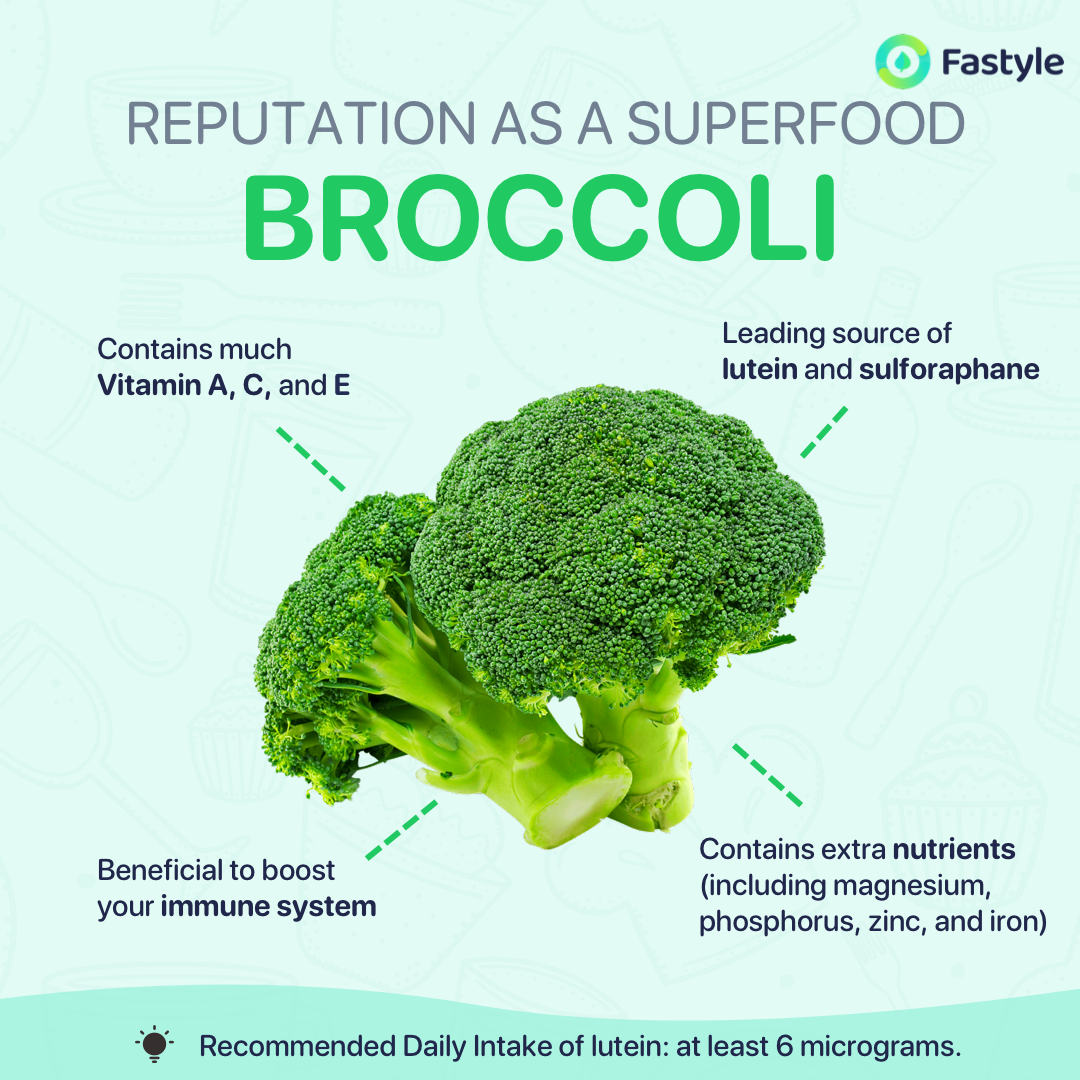
Broccoli Nutrition
A cup of raw broccoli has the following nutrition:
- Calories: 31
- Carbohydrates: 6 grams
- Fiber: 2.4 grams
- Sugar: 1.5 grams
- Protein: 0.5 gram
- Fat: 0.4 gram
- Water: 89%
Benefits of Broccoli
- Beneficial to help to protect your eyes from common eye problems resulting from aging.
- Beneficial to make you less likely to suffer from cancer.
- Beneficial to reduce the risks of heart diseases.
- Beneficial to lose weight.
How to Cook Broccoli in a Healthy and Tasty Way
It’s been known by many people that broccoli is healthy but a big number hates the taste. You can eat broccoli in the following way to balance the nutrition and taste.
Microwave Broccoli
Add some flavors to raw broccoli before microwaving it. It tastes like baked broccoli.
Steam Broccoli
Three to five minutes of steaming makes broccoli change from crisp-tender to mushy taste, and even babies can eat it.
Tomatoes

Tomato Nutrition
A small tomato (100 grams) has the following nutrition:
- Calories: 18
- Carbohydrates: 3.9 grams
- Fiber: 1.2 grams
- Sugar: 2.6 grams
- Protein: 0.9 gram
- Fat: 0.2 gram
- Water: 95%
Benefits of Tomatoes
- Beneficial to make you less likely to suffer from cancer.
- Beneficial to reduce the risks of heart diseases.
- Beneficial to boost your skin health.
- Beneficial to lose weight.
How to Cook Tomatoes in a Healthy and Tasty Way
Most people love tomatoes because of their good taste, and they are also easily cooked to get a balance between nutrition and taste.
Raw Tomatoes
Eating raw tomatoes is a perfect way to get the optimal nutrition from them. They are juicy and tasty and are regarded as the only type of vegetables that can be eaten like fruits.
Roasted Tomatoes
Flavored roasted tomatoes can keep the water contained in tomatoes and taste sweet and sour.
Tomato Salad
Tomatoes can be added to any salad if you would like to absorb nutrients.
Tomato Soup
Tomato soup is the perfect diet in Russian food and soup cooked by tomatoes is usually rich in vitamins and tastes excellent.
Cauliflower
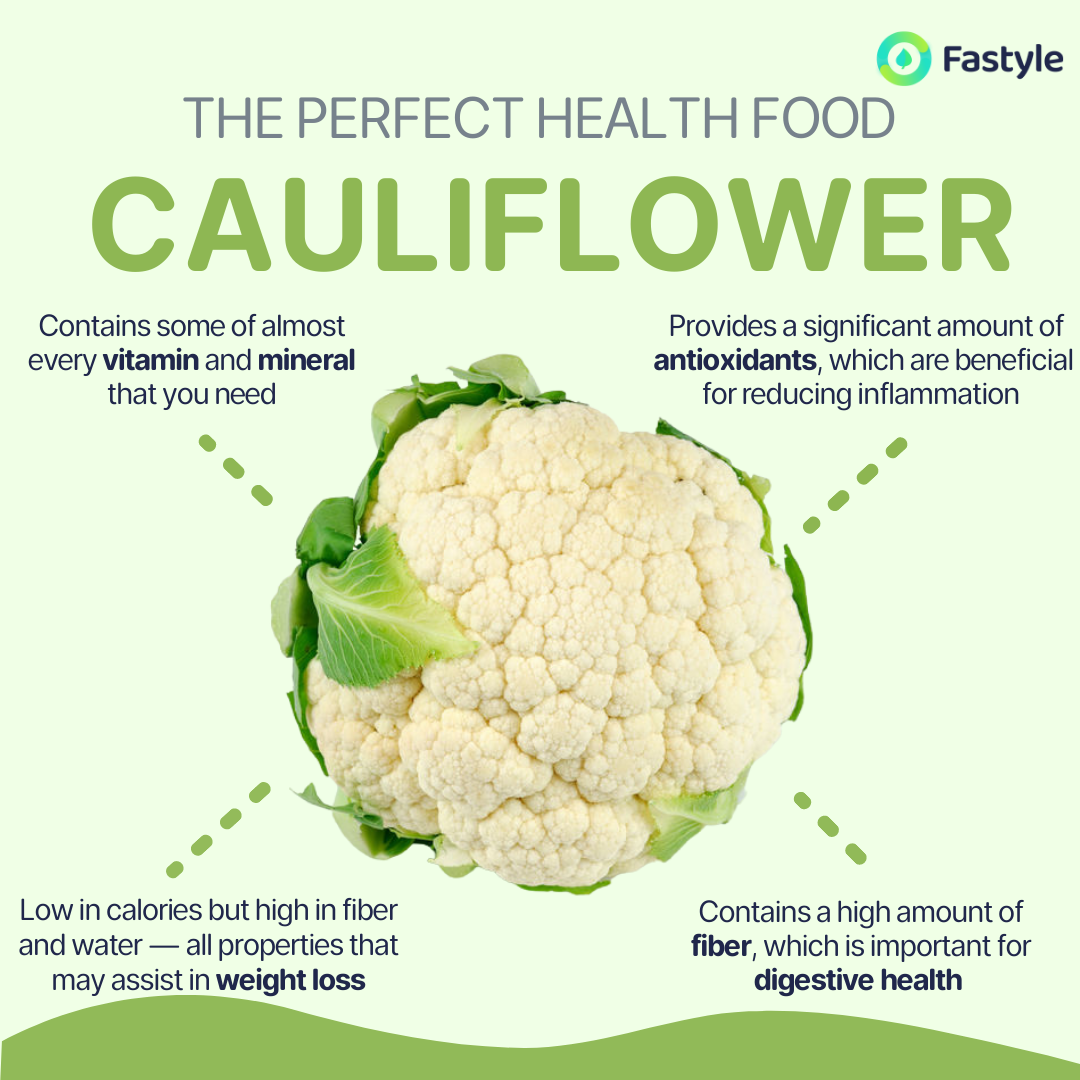
Cauliflower Nutrition
A head medium cauliflower (588 grams) has the following nutrition:
- Calories: 146
- Carbohydrates: 29 grams
- Fiber: 1.2 grams
- Sugar: 11 grams
- Protein: 11 grams
- Fat: 1.6 grams
- Vitamin C: 472% of the daily value
- Iron: 13% of the daily value
- Vitamin B-6: 55% of the daily value
- Magnesium: 22% of the daily value
- Calcium: 12% of the daily value
Benefits of Cauliflower
- Beneficial to boost digestion and reduce constipation.
- Beneficial to make you less likely to suffer from cancer.
- Beneficial to reduce the risks of heart diseases.
- Beneficial to lose weight.
- Beneficial to boost brains (improve sleep, muscle movement, learning, and memory).
- Beneficial to strengthen bones.
How to Cook Cauliflower in a Healthy and Tasty Way
Cauliflower can never be overcooked because the overcooking will make it become so soft free of good taste.
Roasted Cauliflower
Roasted cauliflower keeps the fiber and nutrients of the vegetables and a garlic flavor adding makes it taste better. It doesn’t call for a long time because the long-time roasting will ruin the cauliflower.
Sauteed Cauliflower
Sauteed cauliflower gives the vegetable a nice crunch and is also delicious in salads.
Green Beans
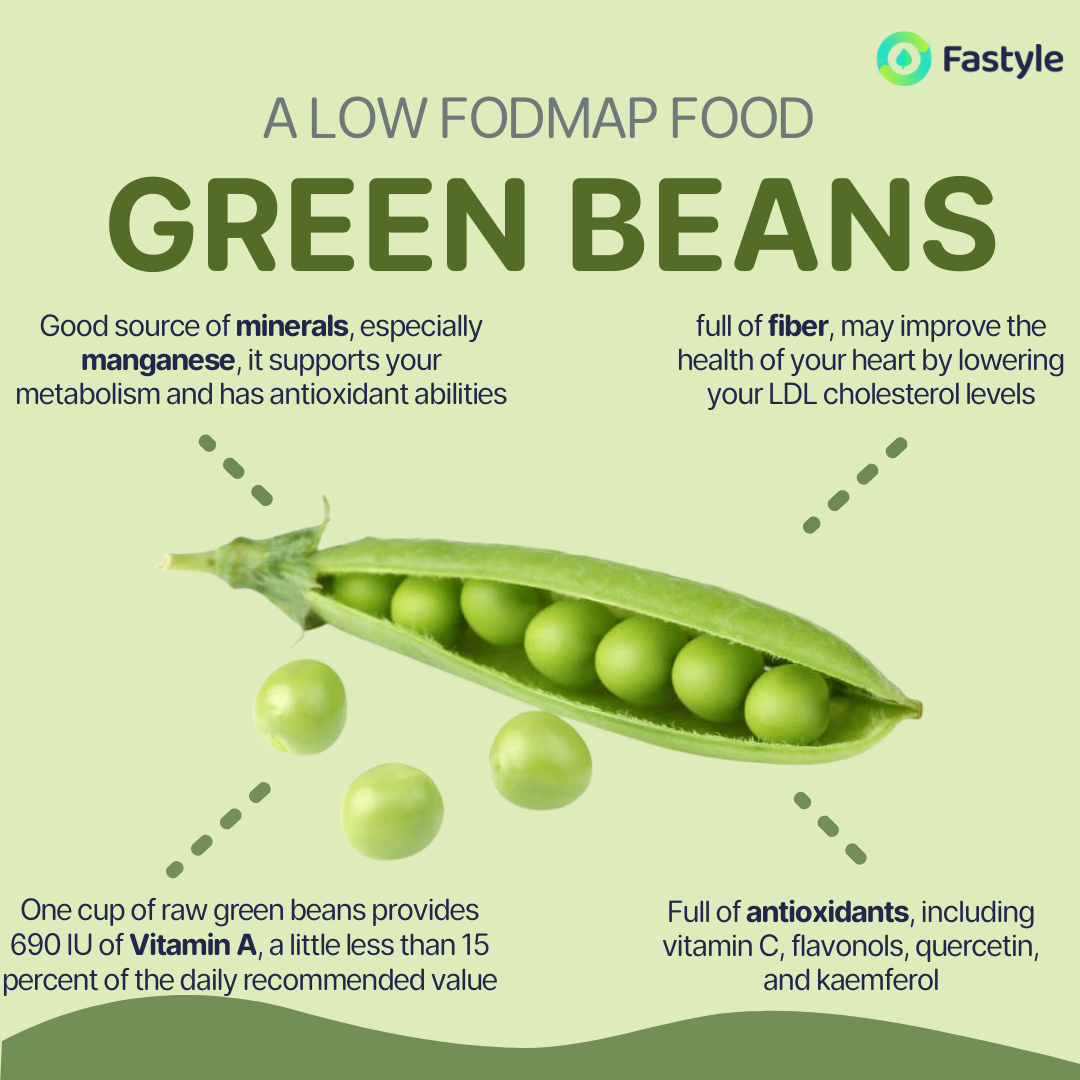
Green Beans Nutrition
A cup of green beans (150 grams) has the following nutrition:
- Calories: 28
- Carbohydrates: 5.66 grams
- Fiber: 2.6 grams
- Sugar: 1.94 grams
- Protein: 1.42 grams
- Fat: 1.6 grams
- Vitamin A: 24 mcg
- Iron: 1.2 mg
- Vitamin K: 52.5 mcg
- Magnesium: 18 mg
- Calcium: 17 mg
- Phosphorus: 30 mg
- Potassium: 130 mg
- Folate: 32 mcg
Benefits of Green Beans
- Beneficial to boost fertility and pregnancy.
- Beneficial to make you less likely to suffer from cancer.
- Beneficial to reduce the opportunity of depression.
- Beneficial to lose weight.
- Beneficial to strengthen bones.
How to Cook Green Beans in a Healthy and Tasty Way
There are multiple cooking methods when it comes to green beans but roasted beans are the commonest. Roasted beans taste yummy and they can be made in a simple way.
Onions
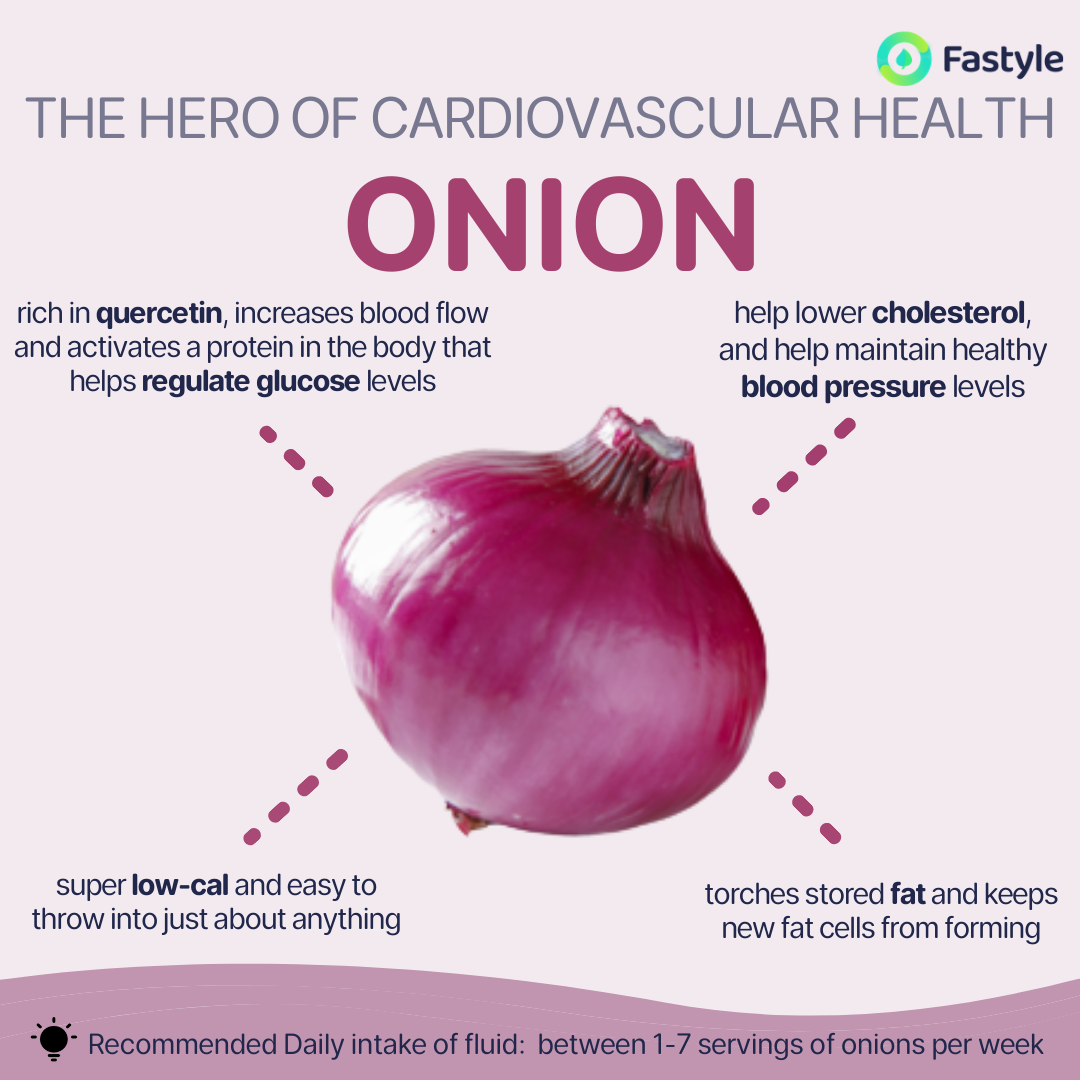
Onion Nutrition
A medium onion (110 grams) has the following nutrition:
- Calories: 44
- Carbohydrates: 10 grams
- Sugar: 4.7 grams
- Protein: 1.2 grams
- Fat: 1.6 grams
- Sodium: 4 mg
- Potassium: 161 mg
- Vitamin A: 24 mcg
- Iron: 1.2 mg
- Vitamin C: 13% of the daily value
- Calcium: 2% of the daily value
- Iron: 1% of the daily value
- Vitamin B-6: 5% of the daily value
- Magnesium: 2% of the daily value
Benefits of Onions
- Beneficial to control blood sugar.
- Beneficial to boost digestion.
- Beneficial to make you less likely to suffer from cancer, diabetes, and heart diseases.
- Beneficial to fight bacteria.
- Beneficial to lose weight.
- Beneficial to strengthen bones.
How to Cook Onions in a Healthy and Tasty Way
Onions have a taste that may disgust people who hate them and the best way to cook them is to sautee them with your favorite flavors.
FOLLOW US
